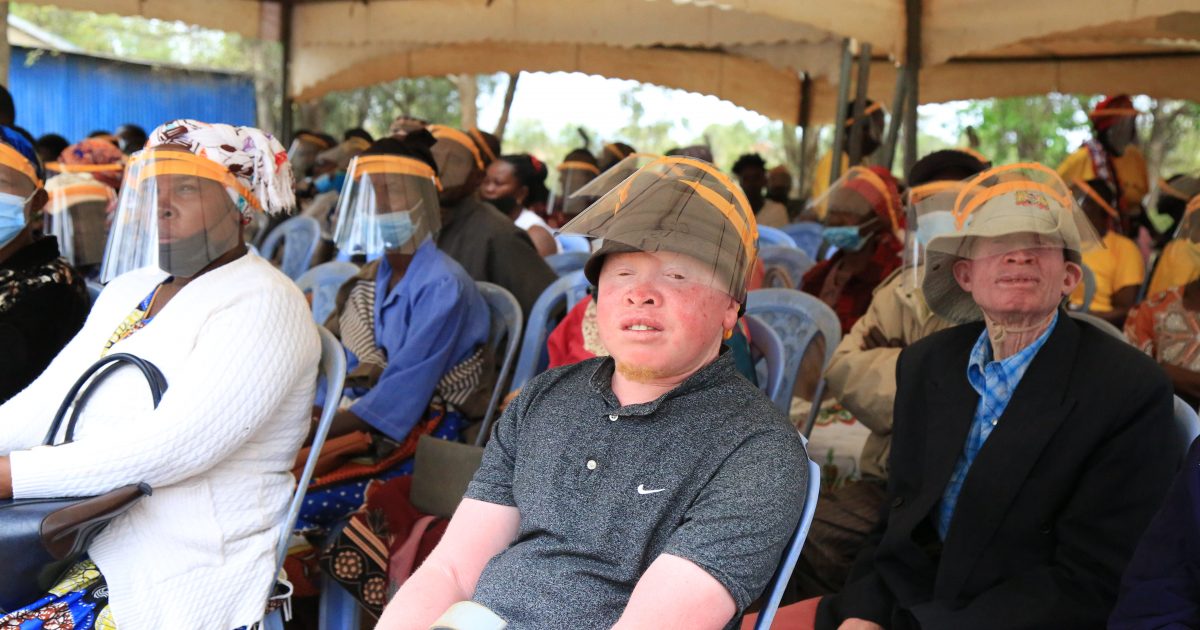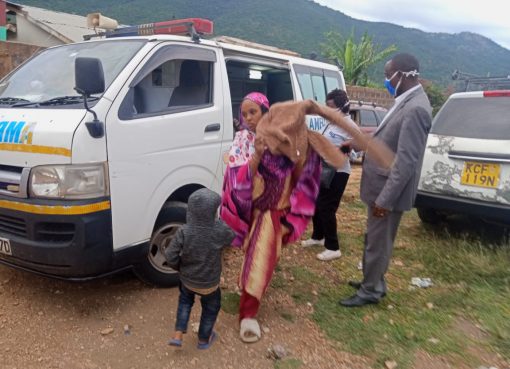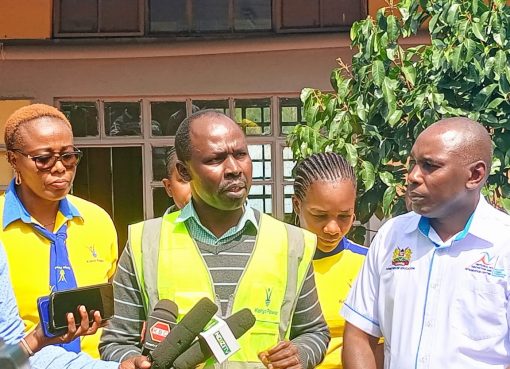The National Council for Persons with Disability (NCPWD) has rolled out a cancer-screening clinic for disabled persons living with albinism in Kitui County.
Speaking to KNA at Kisasi during the exercise, area Coordinator Diana Mugo said cancer screening is critical in order to diagnose and treat the disease at an early age before it becomes debilitating or fatal amongst persons with albinism.

“Persons with albinism unknowingly have Actinic Keratosis and other types of skin cancers but the level or type of cancer varies. Due to this, NCPWD intends to carry out screening across the county to mitigate this challenge,” Mugo said.
She said that the Council has been implementing this programme to cushion persons with albinism from the effects of harmful sun rays, which leads to skin cancer.
“Since 2011, the Council has been providing sunscreen lotions, lip balms, and other services for all persons with albinism to mitigate against the effects of the harmful sunrays that cause skin cancer,” noted Mugo.
She pointed out that due to prolonged exposure to direct sunlight and harmful ultraviolet sunrays, persons with albinism are at the highest risk of contracting skin cancer which is the number one threat and killer disease.
Mugo observed that men are more vulnerable to this because they are the bread winners and are hence exposed to the scorching sun most of the time while searching for their family’s daily bread.
“They also take less care of their skins compared to women. The scorching sun damages the skin of persons with albinism hence a negative perception about albinism based on their outward appearance,” she disclosed.
The Coordinator said that the screening clinic programme aims at ensuring that persons with albinism are encouraged to apply sunscreen lotions and wear protective clothing before being exposed to direct sunlight.
“The programme also seeks to help provide relevant and quality medical care for them, as there is limited knowledge, expertise and facilities to treat skin cancer in the country,” she added.
She lamented that persons with albinism have little or no pigmentation in their eyes hence difficulty in seeing far including tiny or light-reflected objects.
“Low vision and sensitivity to light are therefore a common characteristic of many persons with albinism,” she said.
The Coordinator noted that persons with albinism face a lot of traumatic psychological experiences due to poverty, stigmatization, discrimination, unemployment, poor healthcare, lack of shelter, malnutrition and rejection.
On her part, Josephine Muinde, Kitui County Assembly Nominated MCA representing disabled persons, said that lack of societal tolerance and acceptability towards persons with albinism has increasingly exposed them to exclusion.
Muinde pointed out that teenagers in particular have become vulnerable to peer pressure due to low self-esteem and lack of confidence in themselves.
“Many engage in dangerous and risky behaviors in order to impress peers to gain acceptance. Some resort to excessive drinking and drug taking, to try to escape the prejudice leading to poor healthcare and unplanned pregnancies,” said the Nominated MCA.
Muinde petitioned the county government to provide ramps and other assistive devices at health facilities and ensure services are compliant with Covid-19 protocols.
The nominated MCA called on the county government and partners in the health sector to put in place disability friendly health facilities and services for women living with disability seeking reproductive health services.
By Yobesh Onwong’a





